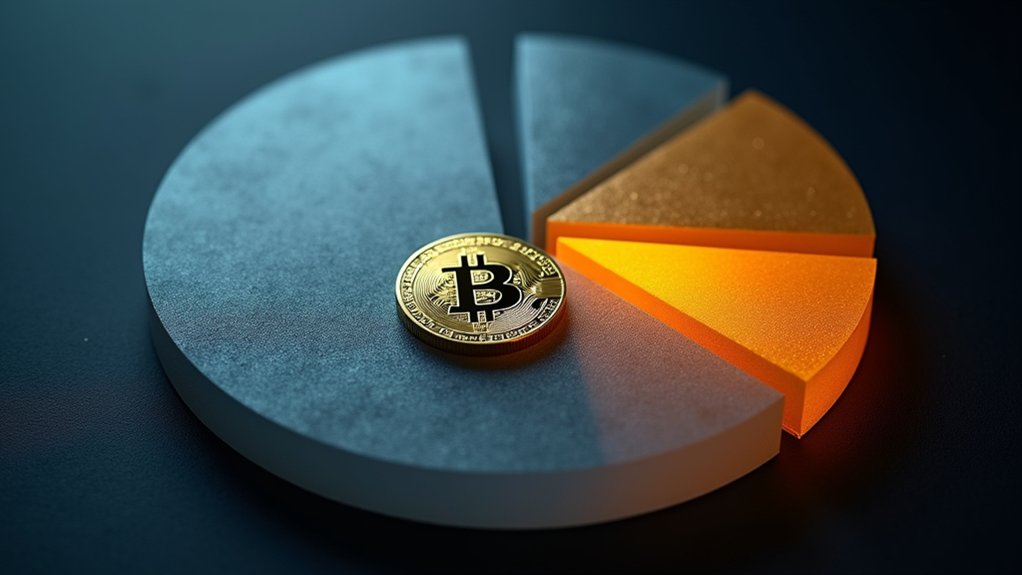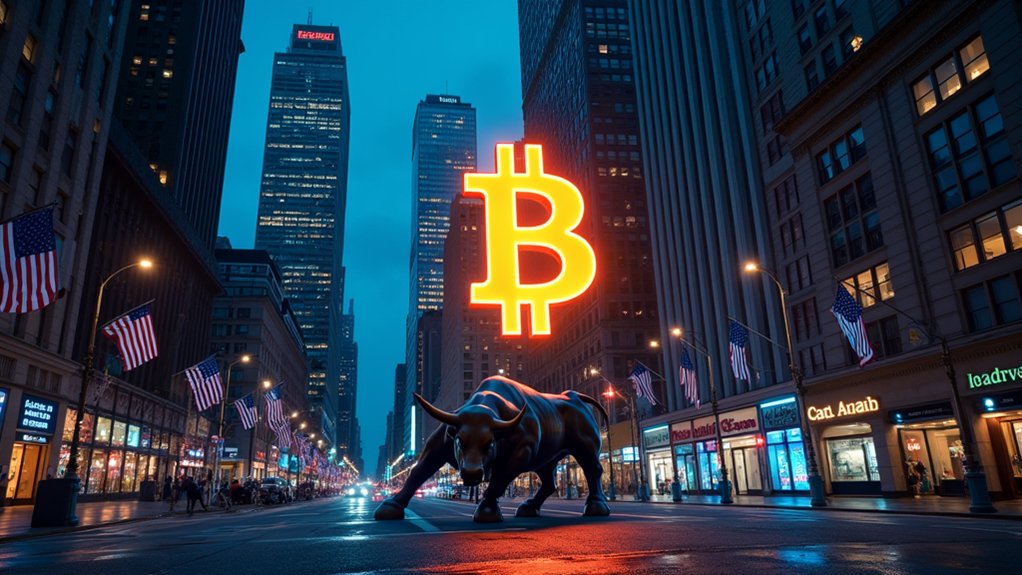Nearly everyone has heard of Bitcoin by now, but its slice of global wealth remains tiny. Despite all the headlines and hype, Bitcoin’s $1.39 trillion market cap represents just 0.3% of global wealth. That’s right – all those passionate crypto evangelists are fighting over less than one percent of the world’s financial pie.
Despite Bitcoin’s trillion-dollar valuation, it represents a mere 0.3% of global wealth – barely a blip in the world’s financial ocean.
The numbers tell a sobering story. While Bitcoin’s value sounds impressive in isolation, it’s dwarfed by traditional asset classes. Gold? Bitcoin’s only worth about 7.6% of that. Real estate, stocks, and bonds? They’re playing in a completely different league, with market caps in the tens of trillions. Even when you throw in all cryptocurrencies combined, they barely scratch 0.56% of worldwide wealth. The current price of $70,665 per bitcoin shows just how far the cryptocurrency has come, yet it remains a fraction of total global assets.
Still, crypto adoption keeps climbing. Over 560 million people worldwide now own some form of cryptocurrency, with the global ownership rate hitting 6.8% in 2024. The rich are getting richer too – there are now 172,300 crypto millionaires globally, up 95% from last year. Bitcoin millionaires alone number 85,400. With a remarkable 99% CAGR in cryptocurrency ownership, the sector’s growth far outpaces traditional payment methods.
And at the very top? Twenty-eight crypto billionaires are living the dream, though they’re probably checking price charts every five minutes.
But here’s the reality check: Bitcoin remains mostly a speculative asset. Despite grand visions of replacing traditional finance, it’s rarely used for daily transactions. Most people treat it like digital gold – something to hodl rather than spend.
And while institutional investors are slowly warming up to crypto, the average Bitcoin holder is still more likely to be a retail trader than a Wall Street firm. The network effects of increasing adoption continue to drive its underlying value proposition.
The wealth effects are fascinating but limited. Sure, some early adopters got stupendously rich, creating new affluent classes in certain regions. But Bitcoin’s small share of global wealth means it’s not exactly reshaping society’s economic structure.
The crypto market’s notorious volatility guarantees that holders experience more financial ups and downs than traditional investors. Sometimes the hype machine just drowns out these basic truths.





